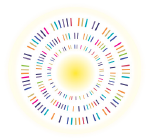Gluten-free diets are trendy in Australia, with 18 percent of us actively avoiding products containing it7. However, with only 2 percent of the Australian population having Celiac Disease or a diagnosable reason to avoid gluten4, should we really be limiting gluten?
Media stories are conflicting with headlines like “gluten-free diets increase your chances of type II diabetes” and ” gluten-free diets cause deficiencies in calcium, vitamin D, thiamine…”7.
In my clinical practice, I am asked on an almost daily basis, “what do you say to these?” My response is that some of the information has merit, but most of it is sensationalist news articles designed to spark controversy.
So, what is gluten anyway?
Gluten is a protein found in Wheat, Barley, Rye, Oats, Triticale, Spelt and Kamut. Its popularity in the human diet over the centuries stems from gluten’s ability to form stretchy, elastic dough that allows things like bread to rise or pizza dough to stretch. Gluten essentially has no unique nutritional value; its primary use is culinary.
Where does the controversy come from?
It stems from the fact that gluten is first and foremost mostly indigestible by humans5.
Our digestion essentially only breaks it apart partially1, 5 which then forms over 50 toxic gluten peptides (small proteins) that can exert cytotoxic, immunomodulatory and permeating effects1, 2.
In other words, gluten can damage our gut lining, leading to intestinal hyper-permeability, aka Leaky Gut.
Leaky Gut means that our intestinal cells can open and allow foods, bacteria and other toxins to flow into our bodies to cause health issues. By interacting with a protein called Zonulin, gluten can stimulate zonulin to then trigger the gates between the intestinal cells to open 1, 2.
Gluten = Zonulin increase = Leaky Gut
Do you have to have Celiac Disease to be affected by gluten?
I don’t want to eat my words here and be a sensationalist; this only happens to a small degree in most people. For example, a person eats a piece of bread, and it triggers a release of Zonulin via gluten and the permeability that it causes happens for a few minutes. This effect would cause minimal health impact. On the other hand, that same scenario in a person with genetic or environmental susceptibilities, that permeability will last for much longer6.
This is where we start to drift into the realm of Non-Celiac Gluten Sensitivity (NCGS).
NCGS is a condition where reactions to gluten are not diagnosed with celiac disease (confirmed via testing). Upon removing gluten for some time, a person with this condition will feel better, and symptoms return with the reintroduction of gluten3. There may also be elevated gut permeability (confirmed via mannitol/lactulose testing) and IgG antibodies to gliadin (confirmed via blood test) 3.
A great example of this is a child that I treated not long ago for unexplained abdominal cramps, diarrhoea, fatigue and bloating. This child came to me presenting elevated IgG antibodies to gliadin (part of gluten proteins). But no diagnosis of Celiac Disease.
We discussed the possibility of NCGS and agreed to remove gluten strictly. Low and behold, with strategies to repair the gut and the removal of gluten, symptoms resolved, and IgG antibodies disappeared. For this client, when occasional gluten would come back into their diet (accidents do happen and sometimes on purpose), they found that reactions would not always happen straight away or with one little dose of gluten. Flare ups sometimes occurred a day later or needed a few exposures to produce symptoms.
So that you know, that client of mine is doing great and has realised their body achieves optimal health off gluten. Now eats gluten-free comfortably.
How do I know if I have NCGS?
The symptoms of NCGS can be broad, and due to this being a new classification, we don’t know all of them 3.
- Bloating
- Abdominal Pain
- Stomach Pain
- Nausea
- Burping
- Reflux
- Gastritis (inflamed stomach lining)
- Constipation & Diarrhoea
- Tiredness
- Headache
- Anxiety
- ‘Foggy mind’
- Numbness
- Joint & Muscle Pain
- Skin Rash
- Dermatitis
Quite a long list, and it makes sense as gluten is affecting a key area of health the gut lining. This effect segues into the other emerging area of gluten and its impact on the body.
Are there other reasons to go gluten-free?
Due to the fact gluten causes leaky gut, there is mounting evidence in support of a link with certain diseases, with the strongest being towards Type I Diabetes 1, 2.
Other diseases include:
- Multiple sclerosis
- Inflammatory bowel disease
- Asthma
- Schizophrenia
- Certain cancers
There is, of course, the need to do more research in these areas. We are still in the process of fully understanding these diseases, let alone the involvement of gluten.
Am I gluten-free?
I get asked a lot in clinic whether I am gluten-free and my response is this: “In light of gluten causing permeability of the intestine and its connections to inflammation, I choose to avoid it. I prefer to find the nutrients found in wholegrain wheat etc. from other sources.”
One last thing about gluten, some people go gluten-free thinking it’s healthier and forget that eating sugar, refined flour, and refined vegetable oils is still bad for your health!
Gluten-free chocolate cupcakes are still cupcakes…
If you are suffering from the above symptoms and would like some help determining whether a gluten-free diet is right for you, come in and see us! We can organise testing for Celiac’s Disease and help you find the right path to improving your health.
Go beyond ‘disease-free’,
Adrian Adams
BHSc Naturopathy & Nutritional Medicine
Contact us to book a 10 minute introductory call with Adrian!
References:
1. A. Fasano, Physiol Rev, 2011, 91(1) 151-175.
2. A. Fasano, Ann N Y Acad, 2012, 1258(1) 25-33.
3. C. Catassi, et al., Nutrients, 2015, 7(6) 4966-4977.
4. Coeliac Australia, Coeliac Disease, 2017 (accessed on the 12th of November 2017)
5. I. Caputo, et al., Enz Res, 2010, 2010(1) 1-9.
6. J. Hollon. Nutrients, 2015, 7(3) 1565-1576.
7. Sky News, Researchers Caution Gluten-Free Diet, 2017 (accessed on the 12th November 2017)



